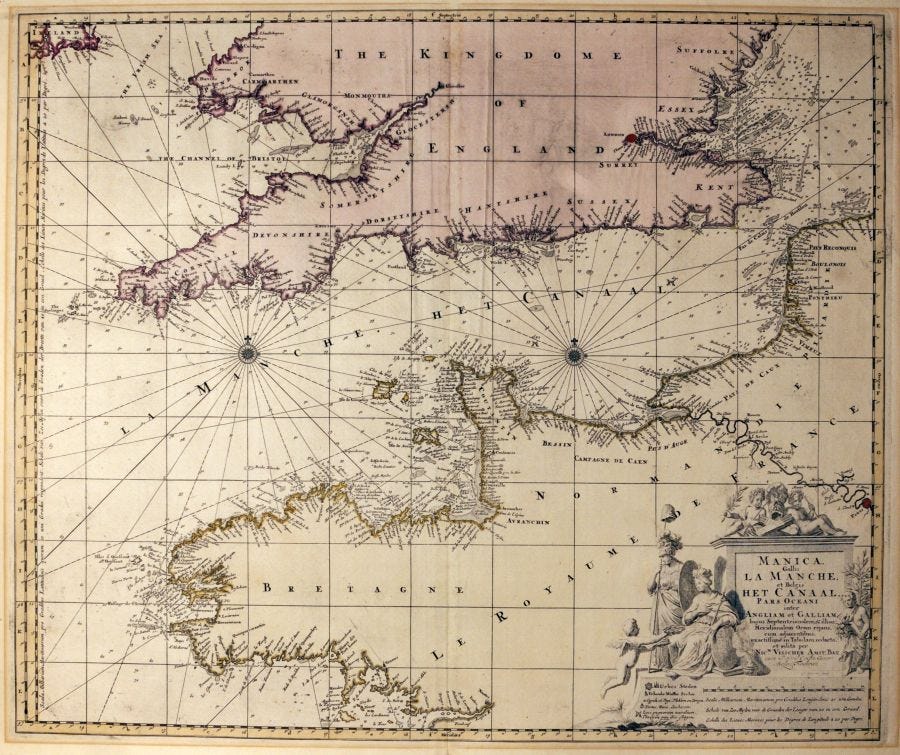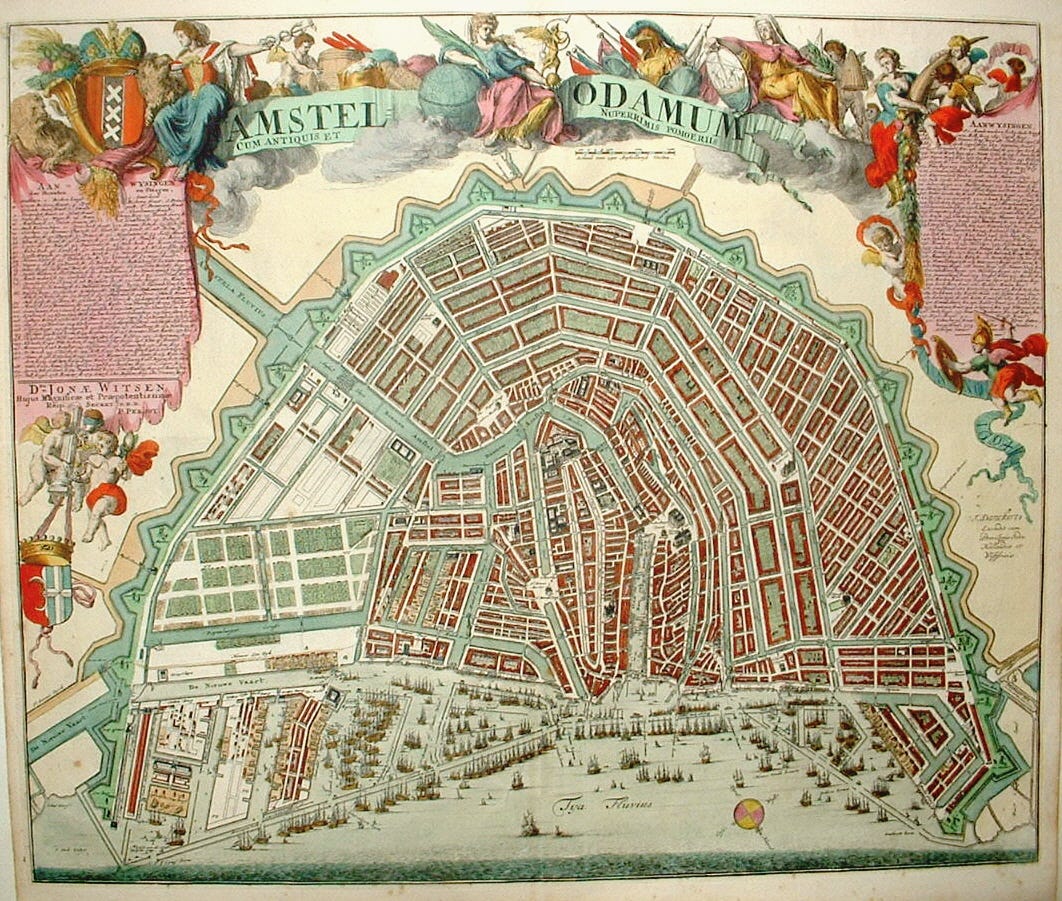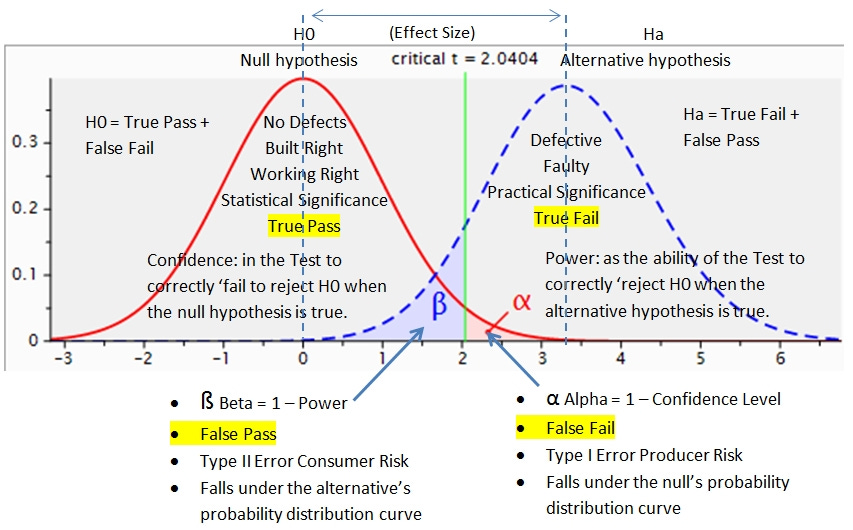MAPS
🌍 I believe everyone should know about these Maps
One of the things my grandfather Carl collected was maps. He is actually the only person I know that collected maps. Most of the maps were antique European maps of cities or countries. He also had some cool 3D maps where you can pass your finger on and feel all the hills and the rivers. His collection also included a couple of very precise navigation maps. He actually also had a technical drawing of a tractor on the wall, I counted that as a kind of map. There were many more maps in his home office but not all of them were hanging on the wall. Sadly, I never asked him why he liked or collected maps or talked to him about his maps, as a kid, I just agreed it was a pretty nice thing to stare at. My grandfather wasn’t really into art where you have to think about how it makes you feel, or were you don’t know what you are actually looking at. He was someone who really liked practical things that help you better understand the world or how something was built or structured. He had a couple of genealogical maps of northern European Nobel families, with the cool shields and everything.

He probably hanged the older maps in his office because they are very pleasing to look at. The amount of detail some maps from the 17th century have makes you realize how mapping has improved while at the same time realise how a roughly right map is already extremely useful and adding more and more detail you always make slightly more useful.

The Abuse of Maps
I always preferred the saying “The map is not the territory” to the sayings “All models are wrong but some are useful” or “ The Menu is not the Meal” when people talk about accuracy. Both sayings say the exact same thing. Both the Map and the Model imperfectly represent the Truth. With a map, it is instantly clear how much details are left out. And we quickly realise how we can still use them to make better decisions. People quickly understand that if you are using a map of London to find your way in Paris you won’t find anything. Yet in science, there have been many attempts at using models that work very well in one domain in another domain where the results are not as good. For example, applying physics to economics.
The issue is that we quickly deceive ourselves that something worked. Sometimes we even pretend that it works by telling ourselves some wild assumption must be true. I do not believe using the London map in Paris is still better than not using a map in Paris. I am not sure why this is very clear with maps but not so clear for models.
Regression works well for some problems but not all problems require regression analysis to solve them. Yet many will still give it a try. It’s like using a map of London in Paris. You know its wrong but it might work. Often people find an answer they are looking for by chance and this then justifies the use of the London map in Paris.
We should allow ourselves to admit when something doesn’t really work. Tragically, there are many incentives that make is so that we would rather pretend something works well when it doesn’t really. Think about Facial recognition. It works, and I assume it works well-ish. But what if it kind of works but we all pretend it “work works”. In other words, what happens if we are told to rely on the technology but see evidence the technology is making mistakes? All I know that we are in a constant battle of fighting deception and trying to get better at detection. Type 1 Vs Type 2 errors if you will. Best is to ask those you work for what mistakes should be avoided, ie what is the worse of the two mistakes to make because the answer will depend on the problem at hand.

My favourite Internet Maps
That was a bit of a drift, I actually wanted to share some “cool maps” I encountered:
Politics
Logical fallacies mapped. It turns out there are far more fallacies then I knew there were.


Math
A map of mathematics (Funny to read the comments on how incomplete the maps is)
A map of how all statistical distributions are related super useful.
Philosophy
(I once heard a statistician say that his job is both applied Philosophy and applied Maths)

History of philosophy summarized and visualized, although I prefer to see it as “How philosophers talk to each other “
A Map of western philosophy schools through history
Another map that will show you how you know absolutely nothing and how big Philosophy is as a subject.
Mapping
You can layer information on a world map with the mapmaking tool of Nat Geo
Business mapping, from Simon Wardly. This is amazing. It’s a very cool tool for mapping business processes and many other things. It’s not a 2x2 and like any type of map you can make it as complicated or rich as you want.
The US Health Atlas. That now also shows all the COVID regions
The Writers Map: A book that collects all the Imagined Maps from stories. My aunt has this and one day I will buy it 😂
For those that love fantasy maps here is a fantasy map generator

And a generator for all kinds of maps and more:

Rcode For working with data and maps:
Quick tutorial for maps using Leaflet
A longer “How To” of the leaflet package
Of course, these are just cool maps and you know as well as I do the internet has an unlimited supply of cool maps. Do share your favourite maps or visual aid if you have one.

